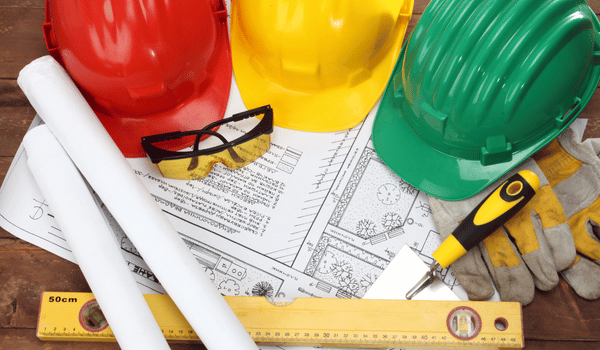
Top Reasons Why Construction Materials Testing in Chennai is a Must for Every Project
Construction materials testing plays a critical role in ensuring the quality, safety, and longevity of any construction project. In a bustling, fast-developing city like Chennai, where infrastructure development is constantly on the rise, the need for rigorous testing of construction materials has never been more essential. From residential buildings to large commercial complexes, every construction project needs to meet stringent safety standards and regulations.
1. Ensures Quality and Durability
Quality assurance is one of the primary reasons for conducting materials testing in construction. The materials used, such as concrete, steel, cement, aggregates, and asphalt, need to meet specific standards for structural integrity and durability. Testing ensures that the materials perform as expected under different loads and environmental conditions. Given Chennai’s humid coastal climate, where high levels of moisture can accelerate wear and tear, ensuring the quality of materials can prevent premature deterioration and costly repairs in the future.
2. Adheres to Regulatory Compliance
Chennai, like other cities, has stringent building codes and standards designed to ensure safety and sustainability in construction. Construction materials testing ensures that your project complies with the regulations set by the Bureau of Indian Standards (BIS) and local authorities. Failing to adhere to these standards can result in legal consequences, delays, fines, or even the shutdown of your project. Proper testing verifies that the materials used in your project meet all compliance requirements, ensuring a smooth and lawful construction process.
3. Prevents Costly Failures
Building a structure without proper material testing may save money initially but can lead to catastrophic failures down the line. Weak or substandard materials can result in structural damage, unsafe living conditions, or even collapse. In Chennai, where earthquakes and other natural calamities are a concern, it’s even more vital to use materials that are strong, reliable, and able to withstand such challenges. Proper testing helps identify flaws in materials, preventing costly repairs, lawsuits, and potential loss of reputation.
4. Improves Safety Standards
Construction is inherently risky, but using high-quality materials that have been tested reduces the likelihood of accidents. Materials testing helps to verify that construction components are safe for both workers and occupants. Whether it’s testing the load-bearing capacity of concrete, the tensile strength of steel, or the durability of insulation materials, these tests ensure that the materials are fit for the intended purpose. This is particularly important in Chennai, where extreme weather conditions, such as heavy rainfall and cyclones, can put additional stress on buildings.
5. Enhances Structural Performance
The right materials, coupled with accurate testing, can significantly enhance the performance of a structure. Testing helps identify the best material choices based on the specific needs of the project—whether it's strength, flexibility, resistance to environmental factors, or thermal insulation. For example, the coastal nature of Chennai makes corrosion resistance a key consideration when selecting materials. Testing helps ensure that the selected materials can perform optimally in the city’s unique environmental conditions, ensuring a longer lifespan for the structure.
6. Reduces Construction Delays
Material testing helps identify potential issues early on in the construction process, allowing for timely resolution before they snowball into more significant problems. By testing materials at various stages of the project, construction companies can ensure that everything is in line with project specifications, preventing delays caused by material defects. Chennai’s construction market is highly competitive, so any delay due to material failures can have significant financial consequences.
7. Enhances Project Cost Efficiency
While material testing might seem like an additional cost upfront, it can save money in the long term by preventing failures and delays. With accurate data on the strength, durability, and suitability of materials, construction firms can make informed decisions, reducing waste and optimizing their procurement process. By using the most cost-effective, high-performing materials, testing helps ensure that the project remains within budget without compromising on quality.
8. Supports Sustainable Construction Practices
As Chennai moves towards greener, more sustainable building practices, the role of materials testing in ensuring eco-friendly construction is becoming more important. Materials such as recycled aggregates, low-carbon cement, and other sustainable options require careful testing to verify their performance. Testing ensures that these materials are viable alternatives to traditional ones, reducing the environmental impact of the construction project while still delivering the required performance.
9. Facilitates Better Design and Engineering Decisions
Construction materials testing provides critical data that engineers and architects rely on to make informed design decisions. The results of various tests can help determine the best material choice, mix design, and structural elements to meet project objectives. In a dynamic city like Chennai, where construction styles are evolving and the demand for innovative solutions is high, testing empowers designers and engineers to explore new options while ensuring safety and functionality.
10. Boosts Confidence for Stakeholders and Clients
When a construction project adheres to high standards of quality and safety, it builds trust among all stakeholders involved, from investors to future tenants. Construction materials testing demonstrates that you are committed to quality and safety, which can positively impact your reputation. In Chennai’s highly competitive construction industry, earning the confidence of clients, investors, and regulatory bodies is crucial for long-term success.
11. Identifies Material Inconsistencies Early
Not all batches of construction materials are uniform. Variations in the manufacturing process can result in inconsistencies that might affect the material's performance. By conducting regular tests on materials from different batches, you can identify any inconsistencies early in the construction process.
12. Ensures Better Maintenance Post-Construction
Material testing doesn’t end once construction is complete. It plays a vital role in ensuring that buildings require less maintenance over time. For example, testing concrete for permeability or ensuring steel reinforcement is corrosion-resistant can reduce the frequency of repairs required throughout the lifespan of a building. This translates into long-term savings and peace of mind for building owners and tenants.

